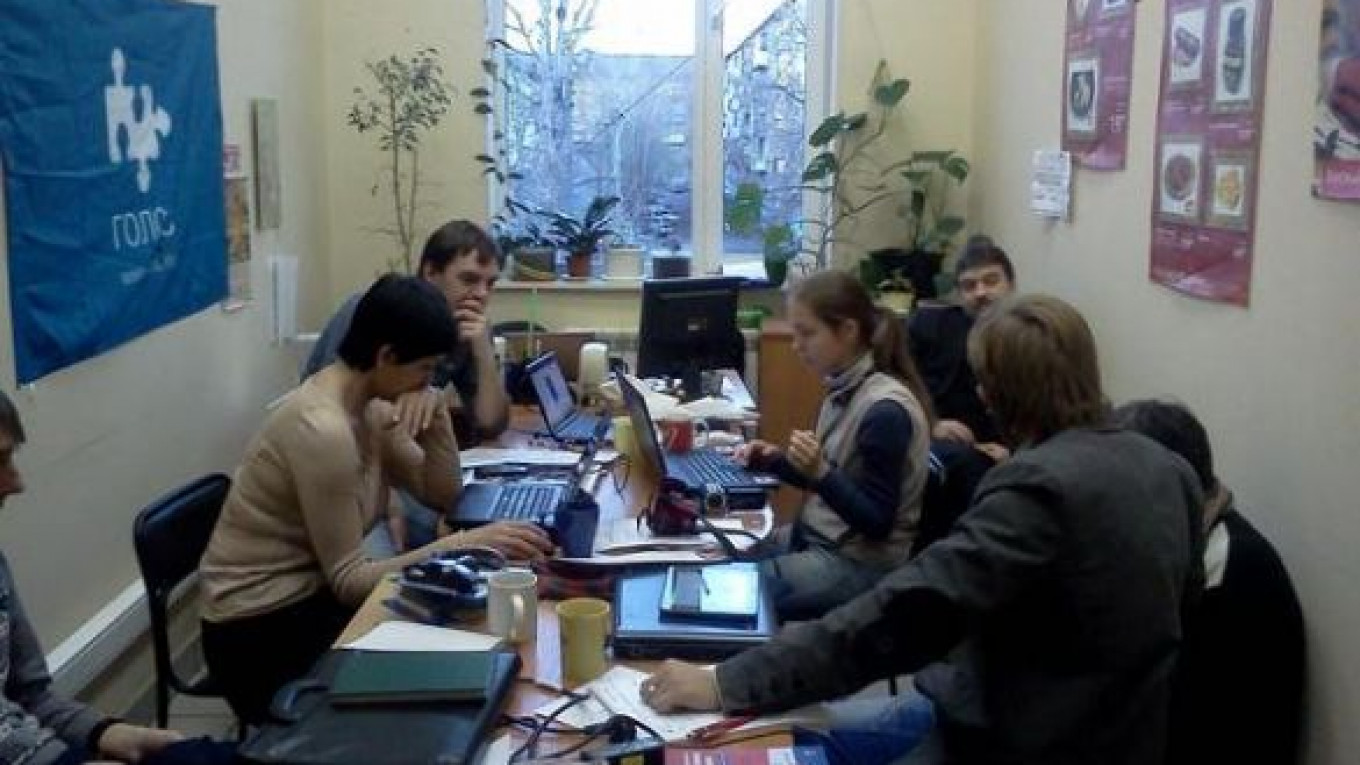A leader of the independent election watchdog Golos has left Russia to continue her work abroad due to a lack of financial support from the state, a news report said Thursday.
Lilia Shibanova said she saw no point in remaining in Russia after Golos was barred from observing nationwide elections in June for its refusal to obey a law that requires all NGOs that receive foreign funding and engage in "political activity" to register as "foreign agents."
Golos was reincarnated in August and still plans to monitor the country's elections, but without more funding it won't be able to continue its work in other fields, she said.
"When there were grants in Russia, we had more projects between the elections, for example, monitoring deputies and checking budgets. But now there are no grants and no more projects," she said in a letter to the presidential human rights council.
An unidentified Golos activist said that Shibanova had already been in Lithuania for a month, Nezavisimaya Gazeta reported.
President Vladimir Putin said Wednesday during a meeting with human rights council members that he was planning to provide human rights organizations with an additional $6 million in presidential grants by the end of the year.
Golos has said, however, that it was unhappy with the way the grants are distributed.
The European stage beyond Russia should give Shibanova more scope to do her job, with Golos planning to monitor elections in Norway, Germany, Georgia, Azerbaijan and Kosovo in the fall.
Her next step is to go to Norway, where Golos has already set up its mission for monitoring the Scandinavian country's regional elections, her letter said.
It is unclear whether the NGO will withdraw from Russia altogether.
During Wednesday's meeting, Putin agreed with critics that "not everything is OK" with the NGO law and said that he was prepared to listen to suggested amendments.
Putin said that political NGOs must openly declare whether they receive money from abroad, but said that the criteria must be clear and understandable.
One of the main criticisms of the "foreign agent" element of the law is that NGOs don't know what to expect if they register with the Justice Ministry due to the legislation's vague wording.
A Message from The Moscow Times:
Dear readers,
We are facing unprecedented challenges. Russia's Prosecutor General's Office has designated The Moscow Times as an "undesirable" organization, criminalizing our work and putting our staff at risk of prosecution. This follows our earlier unjust labeling as a "foreign agent."
These actions are direct attempts to silence independent journalism in Russia. The authorities claim our work "discredits the decisions of the Russian leadership." We see things differently: we strive to provide accurate, unbiased reporting on Russia.
We, the journalists of The Moscow Times, refuse to be silenced. But to continue our work, we need your help.
Your support, no matter how small, makes a world of difference. If you can, please support us monthly starting from just $2. It's quick to set up, and every contribution makes a significant impact.
By supporting The Moscow Times, you're defending open, independent journalism in the face of repression. Thank you for standing with us.
Remind me later.






